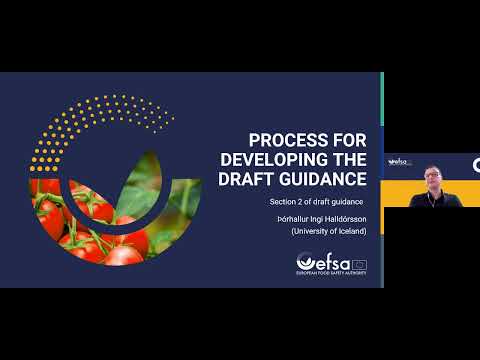Info session on EFSA’s draft guidance on protocol development
Background
EFSA is committed to delivering trustworthy scientific advice and communication of risks from farm to fork. To help achieve this objective, the EFSA Strategy 2027 outlines the need for fit-for-purpose protocols for EFSA’s generic scientific advice. Protocols illustrate a priori the aim of the assessment (problem formulation) and the methods that will be applied to carry it out.
EFSA’s Scientific Committee is developing a guidance document to provide EFSA’s scientific panels and units with a harmonised but flexible framework for developing protocols for ‘generic mandates’, i.e. those not related to the evaluation of regulated products for market authorisations. The guidance document can also be useful for preparing dossiers for regulated products, when the scientific and regulatory framework does not fully detail the data requirements and/or the methods for collecting, analysing, and synthesising data.
The Guidance document is currently available for a public consultation (until 15 May 2023 – see link below) aimed at gathering feedback and input from interested parties before its final adoption by EFSA’s Scientific Committee, scheduled for September 2023.
Objectives of the info session
The event was held concurrently to the public consultation, with the following objectives:
- Provide a clear overview of the draft guidance document to those interested in providing comments during the public consultation
- Address questions to enhance understanding of the draft guidance document.
Questions
All questions posed by the attendees were answered during the info session and are visible via the recordings (see below). After the info session, the chair considered it appropriate to further clarify the following point:
- Question posed by one attendee: What happens if or when you misplace or mix up the APRIO by mistake or lack of evidence? For example, the A is assigned as R and vice versa?
- Answer: Problem formulation, as any other step of the scientific assessment process entails a level of subjectivity that depends on the view of the people performing it, the mandate terms of reference and the purpose of the assessment. Therefore, it is acknowledged that the characterisation of the APRIO elements can vary depending on the situation. This is on the condition that it does not affect the clarity of the question/sub-question and the identification of the evidence needs. However, if the APRIO elements are not consistently interpreted across the various EFSA assessments, in the long term this may have an impact on comparability across EFSA assessments. Therefore, a consistent application of the APRIO elements, coherent with the definitions provided in the Guidance document, is recommended.
Documents and links
- Public consultation on Draft Guidance on protocol development for EFSA generic scientific assessments
- Agenda of the info session
- Final slides
Recording of the info session

Contact
For more information, please contact the organising committee at mese [at] efsa.europa.eu (mese[at]efsa[dot]europa[dot]eu).